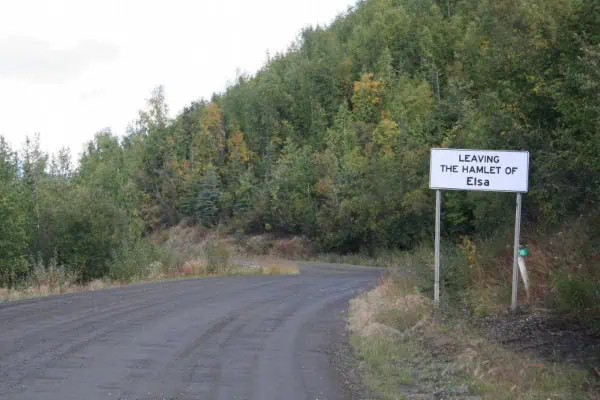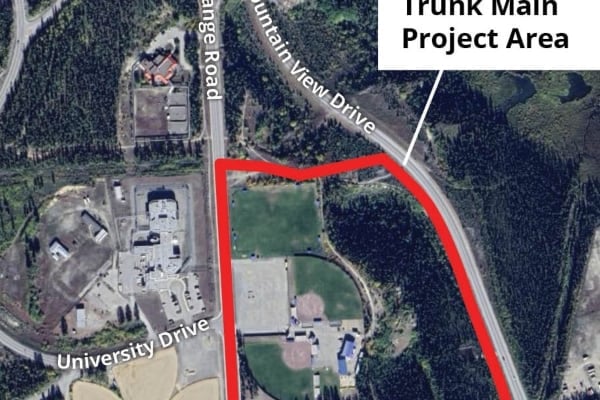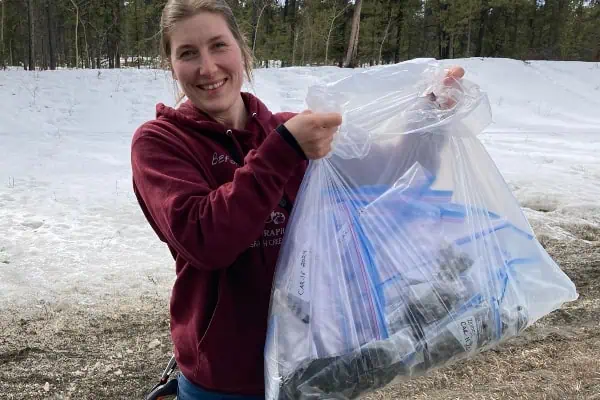What kind of world will be handed down to my daughter’s generation?
That question led conservation ecologist Alejandro Frid to write A World for My Daughter: an Ecologist’s Search for Optimism, which is scheduled for publication by British Columbia’s Caitlin Press later this month.
Alejandro Frid is an assistant professor in environmental studies at the University of Victoria and a science coordinator for the Central Coast Indigenous Resource Alliance.
When his daughter, Twyla Bella, was born, Dr. Frid began to pursue a question that is not easy to answer in a series of letters. These letters to his young daughter are also reflections on the world we live in, and the effect we have on the environment.
At the beginning of the book, he tells his daughter about his time in Southern Chile, where he did research on huemul (South Andean deer) and cattle.
Frid writes that he is part of a generation that is both privileged – because “we still have the option of experiencing large ecosystems that maintain their vibrancy” and cursed – “because we know those ecosystems and the myriad species they support are vanishing at dizzying rates.”
An overreaching theme of his research is how predators affect multi-species interactions and infl uence the structure of biological communities. “Humans are stripping ecosystems of their vibrancy by diminishing top predators. And the oceans are no exception,” he writes.
In the Yukon, Frid found one of these ecosystems that maintain their vibrancy. He spent 11 years in the territory, where he did research on Dall sheep.
It was in the Yukon that he shifted his perspective on mountaineering and hunting. In 1987, he was on his way to the Richardson Mountains on the border between the Yukon and the Northwest Territories.
After spending two months working with the Canadian Wildlife Service, studying birds on the Arctic tundra, he was hungry for human contact. Then he met Jim, an Inuvialuit who worked on a ferry on the Peel River.
They talked about hunting and Frid told him that hunting was meaningless in his upbringing. “I liked to think that, when basic survival needs had been met, sheer mystery and adventure were reasons enough for animals and native people to explore the mountains and tundra.”
Not long ago, survival depended almost completely on hunting, Frid writes. Jim explained to him that the hunt is identity and that hunting defi nes culture and the relationship between people and the land. “I began to see mountaineering as the product of industrialized society and not something that subsistence hunters or mountain goats would naturally pursue,” Frid writes. The conversation with Jim changed his point of view and had a deep impact on him.
The letters to his daughter contain a broad variety of topics, from the problems of climate change to his own family history. He tells his daughter that his descendants were Jewish and barely missed the Holocaust. “But in the longer term, and at a deeper level, all humans descend from hunter-gatherers. This way of life dominates our evolutionary history. Our deepest psyche. “We need to be nourished by wild plants and wild animals. I, in particular, need the exchange with our non-human relatives that hunting, fishing and gathering facilitate. Without it, my world view is much diminished.”
We now live in what has been called the Anthropocene – an epoch in which human activities have a global impact on Earth’s ecosystem, Frid writes.
He himself has been arrested twice for civil disobedience, for opposing fossil fuel projects such as Kinder Morgan’s plan to expand its Trans Mountain pipeline from Alberta to the B.C. coast.
Still, he believes resilience is possible in the Anthropocene epoch.
The book is a search for answers, a journey to find optimism. In the end, though, Frid says he has found something “that I did not even know I was looking for: a way to look at my daughter and imagine her many possible futures.”
A World for My Daughter will be available in paperback as of September 15 for $24.95. Its 224 pages include 50 monochrome and colour photographs.




